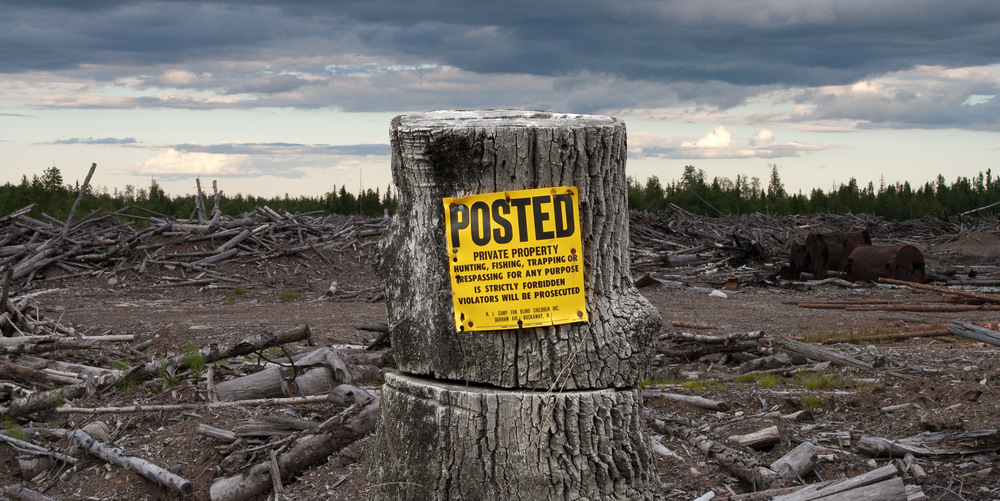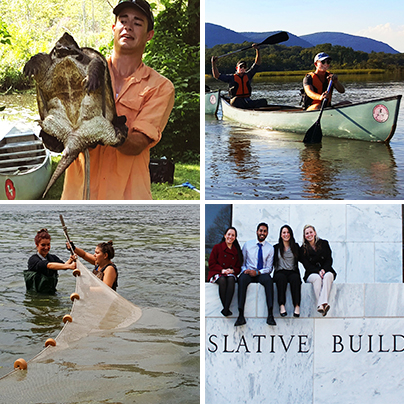
If excessive application of pesticides kills pollinators; if swampland that previously protected coastal cities from flooding is filled in; if the urban green space that calms and re-vitalizes stressed city dwellers is paved over, who pays? Is it the pesticide applicator or the neighbor whose crops are no longer pollinated? Is it the swampfiller or the landowner whose property is flooded? Is it the green space or the anxious city dweller?
Traditional public environmental law often required the polluter to pay. But, on both sides of the Atlantic, environmental neoliberalism offers a different answer: place monetary value on these types of ecosystem services and charge those who benefit; and protect natural resources only where the benefits of doing so exceed the costs. But this economic approach is inadequate because many of nature’s long-term benefits simply cannot be captured by market value.
Ecosystem valuation can be a useful tool to establish value and create awareness of human dependence on the benefits provided by nature, such as drinking water, clean air, and flood protection, as well as public space to hunt, fish, canoe and camp. For example, wetlands and floodplains along Otter Creek protected Middlebury, Vermont, from more than $1.8 million of flood damage during Tropical Storm Irene, according to a new study from the University of Vermont.
Too often, traditional property rights impede efforts to protect nature
But where pressure for development is very high, valuation of ecosystem services won’t justify preservation. For example, the Chamber of Commerce in Stockholm has published a report arguing for using nature reserves for housing and taking away the right of municipalities to set land aside for nature reserves. And much of New York City’s response to Hurricane Sandy has been to conquer nature with stronger coastal armoring rather than retreat and allow nature to return.
A neoliberal analyst might say that under these circumstances, it is appropriate to prioritize development. But, the neoliberal approach lacks the ability to understand and value the full scope of nature’s benefits, both known and unknown, because property rights complicate the valuation analysis. Robust protections for private property can increase costs of preservation efforts.
The answer is to limit traditional property rights. Too often, they impede efforts to protect nature, for example by allowing wetlands destruction, and they impede development that is helpful to the planet in the long run, such as the installation of wind turbines. Property protections can leave us stranded, unable to adapt to new conditions in a changing world. We must evolve — while looking in the rear view mirror — and recognize that private property rights are not unlimited, and benefits from nature are not a private thing.
Harms to the greater public interest cannot be easily solved by the market. Why not recognize nature’s intrinsic value?
Individuals with control over public natural resource benefits should not be allowed to destroy such property as as if they were destroying personal property. We must get inspiration from the era when landowners, under the common law, did not have the right to change the essence of their land if it harmed their neighbors as a nuisance, or damaged the environment held in public trust. For example, the Wisconsin Supreme Court in Just v. Marinette Co. (1972) limited the ability of a landowner to fill in his wetlands, which generated public benefits. It stated, “An owner of land has no absolute and unlimited right to change the essential natural character of his land so as to use it for a purpose for which it was unsuited in its natural state and which injures the rights of others.”
Harms to the greater public interest cannot be easily solved by the market. The neoliberal take on nature compares the monetary value for lost ecosystem services against the benefits of development. But why not recognize nature’s intrinsic value and see that certain uses are too costly in the first place regardless of any competing benefits? Those infringing on public environmental benefits should pay the price of the destruction or simply be denied the property right to infringe upon those benefits in the first place.
Living as we are in the Anthropocene, these environmental benefits are ever more important given that humans are actually using up nature; fewer forests, less potable water, and fewer wetlands to purify water and help with flood protection. According to the Millennium Ecosystem Assessment, 60% of the global ecosystems assessed are in decline.
The authors are not advocating an end of democratic principles or the end of private property rights. But for any given property, there are more stakeholders than just the landowner. The latter should not be allowed to reduce or deny the former the right to nature’s benefits. These benefits are no longer in surplus and if they are removed there is no guarantee that another piece of land can replace them.
Modern valuation of ecosystem services provides the data that support the Wisconsin court case. But as people became more sophisticated, they came to appreciate that swamps and wetlands serve a vital role in nature, contribute to the balance of nature and are essential to the purity of the water in our lakes and streams. Swamps and wetlands are a necessary part of ecological creation and now, even to the uninitiated, possess their own beauty.
The costs of the Anthropocene have been high. And they are mounting quickly. Author Elizabeth Kolbert calls it the “Sixth Extinction.” Given humanity’s toll on biodiversity and natural resources, we must reduce development and rethink our present notions of property rights in order to stave off further extinctions, including our own. Land may be individually used and owned, but we must understand that protecting it for its intrinsic value will provide nature’s benefits to all.
«« »»
Jason J. Czarnezki is the Kerlin Distinguished Professor of Environmental Law and Associate Dean of Environmental Law Programs at the Elisabeth Haub School at Pace University. Johan Elmberg is a Professor of Animal Ecology in the Department of Natural Sciences at Sweden’s Kristianstad University. Magnus Tuvendal is an environmental consultant in Stockholm, specializing in ecosystem services, and has a PhD in Natural Resource Management.


